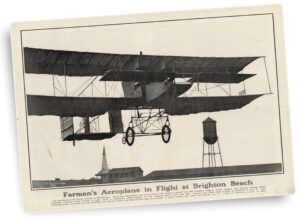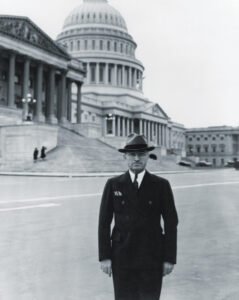![Todd Reichert prepares to make history during the June 13 attempt to meet the Igor I. Sikorsky Human Powered Helicopter Challenge. [Image: Aerovelo]](https://www.historynet.com/wp-content/uploads/image/2012/AVH/sikorski-prize.jpg)
After 33 years, the Igor I. Sikorsky Human Powered Helicopter Challenge has at last been met. The American Helicopter Society’s requirements were rigorous: The machine had to fly for at least 60 seconds, rise to at least 3 meters and remain within a horizontal area no larger than 10 meters. On June 13, a team of young Canadian engineers known as AeroVelo, founded by Todd Reichert and Cameron Robertson, succeeded on all counts with their Atlas multicopter. Their flight lasted 64 seconds and reached 3.3 meters altitude.
Reichert and Robertson began the project with a Kickstarter bid that provided $30,000 toward an airframe. Altogether, they worked on the Atlas for 18 months. Though their bicycle-powered helicopter weighs only 122 pounds, it’s larger than most commercial aircraft, with four sets of rotors that are each 66 feet in diameter. Reichert supplied pedal-power for the winning performance in June, though Robertson pointed out in a radio interview that each flight involves a crew of 10 assistants on the ground.
The successful June 13 flight, which took place inside a Toronto soccer center, came at the very end of five days of testing. Once both the American Helicopter Society and the Fédération Aéronautique Internationale certified the results of that effort, AeroVelo received a $250,000 check in July.
Spurring on the Canadians’ bid were the efforts of an American team. The University of Maryland’s Gamera helicopter had already succeeded in meeting Sikorsky’s altitude and duration requirements, but struggled to achieve the control needed to stay within the specified horizontal area during flights. As Cameron Robertson said in the radio interview, late in the competition both teams were avidly following each other’s Twitter feeds to keep abreast of the latest results. He noted, “It was incredible how neck-and-neck it was at the end.” For more on AeroVelo’s Atlas and the winning flight, see aerovelo.com.




